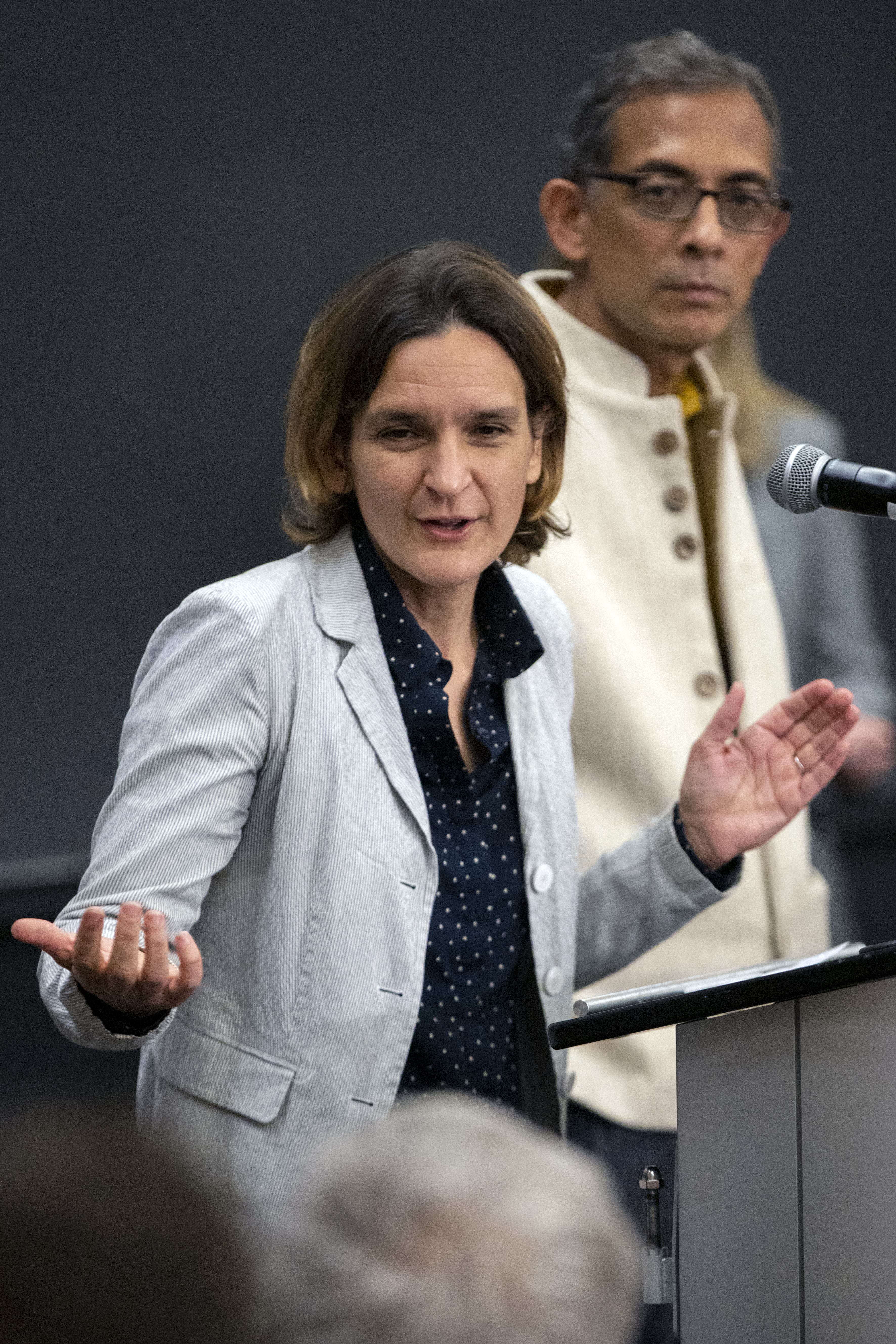On March 14, this year, scores of economists and social scientists from across the world spoke out against a tendency to suppress uncomfortable data in India, seeking to restore access and integrity to public statistics and re-establish institutional independence to statistical organisations.
“Any statistics that cast an iota of doubt on the achievement of the government seem to get revised or suppressed on the basis of some questionable methodology,” said an appeal signed by 108 academics.
The appeal was endorsed by some of the most respected economists and statisticians, including Abhijit Banerjee and Esther Duflo of MIT.
The statement had come amid a debate over jobs and the statistical haze shrouding related data.
In end-January, the acting chairman of the National Statistical Commission (NSC), a government-funded advisory body, had resigned in protest against a delay in releasing employment data. Information leaked later suggested the unemployment rate in the country in the year ending June 2018 rose to 6.1 per cent, the highest level in at least 45 years.
The authors of the appeal had steered clear of partisan politics and had said the statement was addressed to both current as well as future government authorities. They had also appealed to professional economists, statisticians and independent researchers in policy to close ranks regardless of their political and ideological leanings and raise their voice.
The full appeal, titled “Economic statistics in a shambles: Need to raise a voice”, is given below:
Economic statistics are a public good. They are a vital necessity for policy-making and informed public discourse in democracies where citizens seek accountability from its government. The use of scientific methods for collection, and estimation and their timely dissemination, therefore, form vital public services.
It is, thus, imperative that the agencies associated with collection and dissemination of statistics like Central Statistical Office (CSO) and National Sample Survey Organisation (NSSO) are not subject to political interference and their work, therefore, enjoys total credibility.
For these reasons, globally, such institutions are usually bestowed with professional autonomy.
For decades, India’s statistical machinery enjoyed a high level of reputation for the integrity of the data it produced on a range of economic and social parameters. It was often criticised for the quality of its estimates, but never were allegations made of political interference influencing decisions and the estimates themselves.
Lately, the Indian statistics and the institutions associated with it have, however, come under a cloud for being influenced and indeed even controlled by political considerations. The following list is illustrative in nature.
- In early 2015, the Central Statistics Office (CSO) issued a new GDP series (with the revised base year 2011-12), which showed a significantly faster growth rate for the years 2012-13 and 2013-14 compared to growth under the earlier series. These revised estimates were surprising as they did not square with related macro-aggregates.
Since then, with almost every new release of GDP numbers, more problems with the base-year revision have come to light. In January this year, for instance, the CSO’s revised estimates of GDP growth rate for 2016-17 (the year of demonetisation), shot up by 1.1 percentage points to 8.2 per cent, the highest in a decade! This seems to be at variance with the evidence marshalled by many economists.
- In 2018, two competing back series for varying lengths of time were prepared — separately by two official bodies, (a committee of) the National Statistical Commission and later by the CSO. The two showed quite opposite growth rates for the last decade.
The National Statistical Commission numbers were removed from the official web site and the CSO numbers were later presented to the public by the Niti Aayog, an advisory body which had hitherto no expertise in statistical data collection. All this caused great damage to the institutional integrity of the autonomous statistical bodies.
- In December 2018, the schedule for the release of results from the Periodic Labour Force Survey (PLFS) of the NSSO was not met. This was the first economy-wide employment survey conducted by NSSO after 2011-12 and was therefore deemed important. Two members of the National Statistical Commission, including the acting chairman, subsequently resigned because they felt the NSSO was delaying the release of the report, though the NSC itself had officially cleared it.
Subsequently, news reports based on leaks of the report showed an unprecedented rise in unemployment rates in 2017-18; this perhaps explained why the Government did not want to release the report. There have since been news reports that the PLFS of 2017-18 will be scrapped altogether by the Government.
In fact, any statistics that cast an iota of doubt on the achievement of the government seem to get revised or suppressed on the basis of some questionable methodology.
This is the time for all professional economists, statisticians, independent researchers in policy — regardless of their political and ideological leanings — to come together to raise their voice against the tendency to suppress uncomfortable data, and impress upon the government authorities, current and future, and at all levels, to restore access and integrity to public statistics, and re-establish institutional independence and integrity to the statistical organisations.
The national and global reputation of India’s statistical bodies is at stake. More than that, statistical integrity is crucial for generating data that would feed into economic policy-making and that would make for honest and democratic public discourse.
Post-script: On March 19, BJP leader Arun Jaitley, who passed away on August 24, said: “The recent statement by the 108 purported economists reveals compulsions of ‘Compulsive Contrarians’. Most of them have, over the last few years, repeatedly signed the memorandums of manufactured issues against path-breaking reforms of the present government.”











